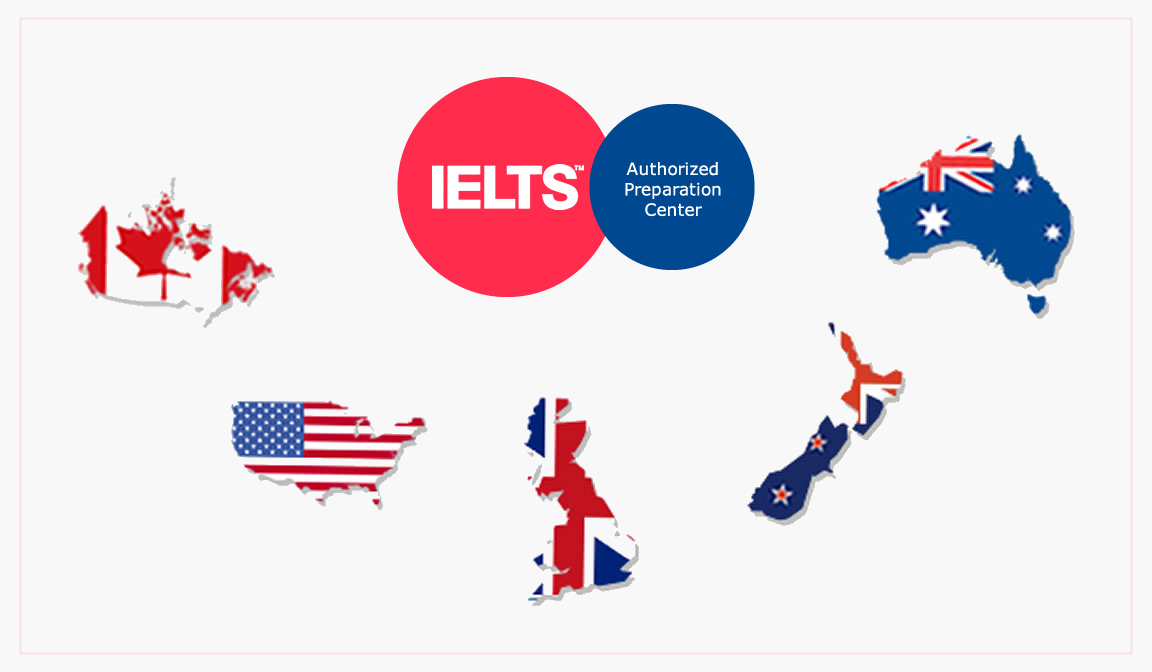Introduction
The International English Language Testing System (IELTS) measures the language proficiency of people who want to study or work where English is used as a language of communication. It uses a nine-band scale to clearly identify levels of proficiency, from non-user (band score 1) through to expert (band score 9).
IELTS Academic or IELTS General Training
IELTS is available in two test versions: Academic – for people applying for higher education or professional registration, and General Training for those migrating to Australia, Canada and the UK, or applying for secondary education, training programmers and work experience in an English-speaking environment. Both versions provide a valid and accurate assessment of the four language skills: listening, reading, writing and speaking.
IELTS Academic
The IELTS Academic test is for people applying for higher education or professional registration in an English-speaking environment. It reflects some of the features of academic language and assesses whether you are ready to begin studying or training. This approach is widely supported by the institutions that recognize IELTS.
IELTS General Training
The IELTS General Training test is for those who are going to English speaking countries for secondary education, work experience or training programs. It is also a requirement for migration to Australia, Canada, New Zealand and the UK. The test focuses on basic survival skills in broad social and workplace contexts.

Apply IELTS Through Online
The IELTS test assesses your abilities in listening, reading, writing and speaking – in less than three hours. There are two types of the IELTS test: IELTS Academic and IELTS General Training. Listening and Speaking are the same for both tests, but the subject matter of the Reading and Writing components differs depending on which test you take. The Listening, Reading and Writing components of all IELTS tests are completed on the same day, with no breaks in between them.
The Speaking component, however, can be completed up to a week before or after the other tests. Your test center will advise. The total test time is 2 hours and 45 minutes
Listening
40 MinutesReading
60 MinutesWriting
60 MinutesSpeaking
15 Minutes40 Minutes
- Candidates listen to four recordings and answer 10 objective questions from each recording in 40 minutes.
- 1st Recording – Dialog in an everyday issue.
- 2nd Recording – Monologue in a social issue.
- 3rd Recording – Academic Discussion.
- 4th Recording – Monologue in an academic issue.
60 Minutes
Academic Test
- Reading Comprehension format.
- Candidates will read three passages.
- Length of each passage is of around 1000 words.
- From each passage 12/14 objective questions.
- Likewise, 40 questions to answer from 3 passages.
- All answers need to be transferred in an answer sheet.
General Test
- Reading Comprehension format.
- Candidates read 5 passages.
- Total 40 objective questions.
- All answers need to be transferred in an answer sheet.
- Extracts from Notices, Advertisements, Short texts.
60 Minutes
Academic Test
Task 1
- Report Writing based on graphical figures.
- More than 150 words of descriptive writing.
- Suggested time: 20 minutes.
Task 2
- Essay Writing based on a given topic.
- More than 250 words of Persuasive essay.
- Suggested time: 40 minutes.
General Test
Task 1
- Letter Writing.
- More than 150 words of formal/semi-formal/informal letter.
- Suggested time: 20 minutes.
Task 2
- Essay Writing based on a given topic.
- More than 250 words of Persuasive essay.
- Suggested time: 40 minutes.
15 Minutes
- Conducted on a different day.
- A one to one conversation in an interview format.
- Face to face interaction with an oral examiner.
- Part 1: General Introduction (4-5 minutes)
- Part 2: The long turn. 2 minutes of uninterrupted speaking on a given topic
- Part 3: Discussion. More abstract ideas (4 – 5 minutes)
IELTS for Study
Accepted as evidence of English proficiency by 10,000 institutions An IELTS certificate is recognized as evidence of proficiency in English by more than 10,000 education and training providers worldwide. Some universities in non-English speaking countries require an IELTS score, where courses are taught in English.
IELTS for Migration
The IELTS General Training test is for those who are going to English speaking countries for secondary education, work experience or training programs. It is also a requirement for migration to Australia, Canada, New Zealand and the UK. The test focuses on basic survival skills in broad social and workplace contexts.
IELTS results are reported on a 9-band scale
IELTS results are designed to be simple and easy to understand. They are reported as band scores on a scale from 1 (the lowest) to 9 (the highest).
| Band Score | Skill Level | Description |
|---|---|---|
| Band 9 | Expert User | You have a full operational command of the language. Your use of English is appropriate, accurate and fluent, and you show complete understanding. |
| Band 8 | Very Good User | You have a fully operational command of the language with only occasional unsystematic inaccuracies and inappropriate usage. You may misunderstand some things in unfamiliar situations. You handle complex detailed argumentation well. |
| Band 7 | Good User | You have an operational command of the language, though with occasional inaccuracies, inappropriate usage and misunderstandings in some situations. Generally you handle complex language well and understand detailed reasoning. |
| Band 6 | Competent User | Generally you have an effective command of the language despite some inaccuracies, inappropriate usage and misunderstandings. You can use and understand fairly complex language, particularly in familiar situations. |
| Band 5 | Modest User | You have a partial command of the language, and cope with overall meaning in most situations, although you are likely to make many mistakes. You should be able to handle basic communication in your own field. |
| Band 4 | Limited User | Your basic competence is limited to familiar situations. You frequently show problems in understanding and expression. You are not able to use complex language. |
| Band 3 | Extremely Limited User | You convey and understand only general meaning in very familiar situations. There are frequent breakdowns in communication. |
| Band 2 | Intermittent User | You have great difficulty understanding spoken and written English. |
| Band 1 | Non-user | You have no ability to use the language except a few isolated words. |
| Band 0 | Did not attempt the test | You did not answer the questions. |


Affiliations and Professional Certifications
We have been certified with the following organizations.




